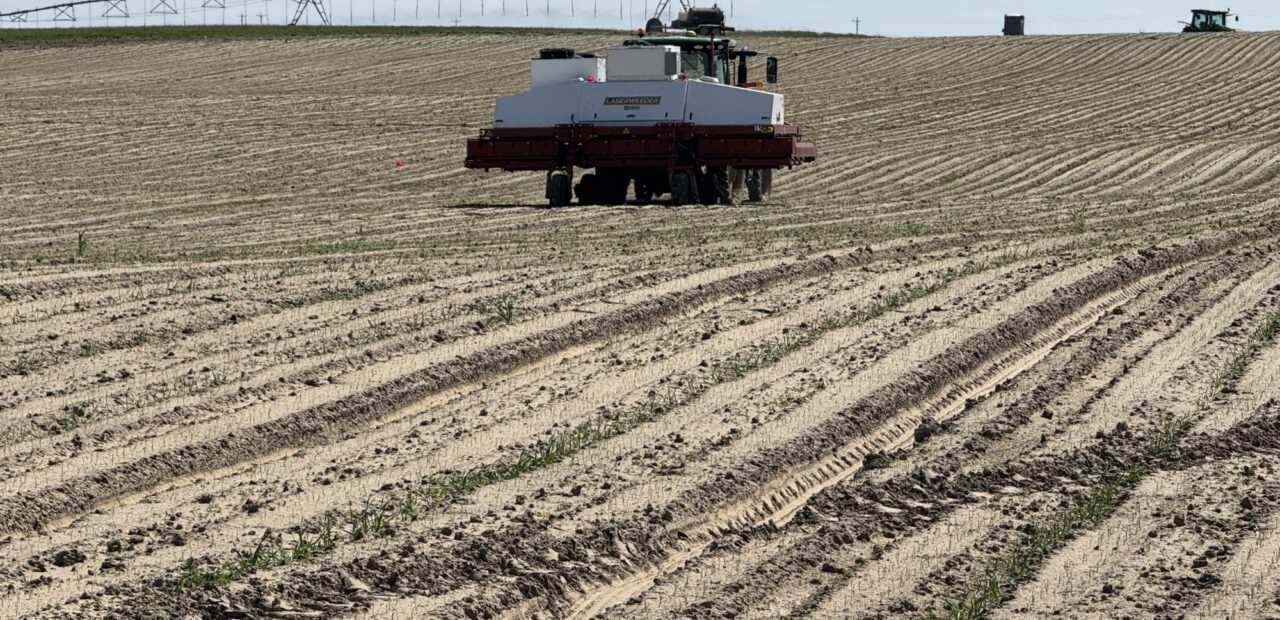Applying Our Passion For Farming to Organics at Threemile
| Posted in: Land Sustainability & Stewardship
Since 2002, we’ve increased our certified organic acreage from about 270 acres to over 6,500, making us one of the region's larger organic vegetable and feed crop growers. Of course, we also grow conventional crops and maintain our dairy operation, but growing organic crops the right way is a source of passion for many of our farm team. With each season, farm team members gather to make important decisions about the new crops, including rotations, making adjustments to achieve better soil health, what the watering season will look like, and more.
Jonathon Springstead has been with Threemile since 2005 and is currently one of the Directors of Zone Operations. During his two decades, Springstead’s passion for farming has grown right alongside the acreage of our organic crops.
“I didn’t grow up farming. I worked in irrigation, worked as a zone supervisor of about 4,000 acres, and now I oversee a little over half the acres out here with my managers, and we’re growing those crops,” says Springstead. “I think working for a farm this size, we’re just creating more food. We’re growing more food for the cows, for people, for processing plants and customers.”
We have grown many different crops over the years at Threemile, and today we grow a variety of fresh organic produce and organic grains and feed, including alfalfa, dry corn, blueberries, orchard, onions, hemp, carrots, and wheatlage.
“Threemile started growing a couple hundred acres of organic back in 2002 and it’s just kind of grown since then,” says Springstead.
As part of our closed-loop system, we grow 50% of our own feed, which often includes organic crops. Potato, carrot, and onion processing by-products are fed to our cows along with organic alfalfa and triticale, providing yet another source of nutrients to keep a balanced diet for our healthy, happy, and productive cows. Our dairy also provides an abundant supply of nutrient-rich organic manure, which we separate and dilute. The liquid fertilizer known as “green water” is injected into our precision irrigation system and applied to our crops on a circle-by-circle basis. In addition to increasing the production of our certified organic crops, this natural fertilizer dramatically reduces our use of fossil fuel-based fertilizers.

“One of the things that we have to do with organics, is we have to have really good cultivation. We have to have good land management, good water, good tillage management, and then also have the right tools to cultivate those fields. Through the last fifteen years of me being involved in conventional and organics, the organics has evolved immensely,” he says. “We’re always trying different things. That’s the key to organics is you can’t just be comfortable with the norm.”
On a recent field check, Springstead took a reading of soil moisture for organic alfalfa. With organics, your success often comes down timing, water, and good soil health.
“Soil health at Threemile is very important. We go through certain rotations to try to keep soil integrity, whether we are putting organic matter from compost back into the soil or growing mustard back and we’re working that. Bringing that organic matter back into it actually helps with airborne diseases, and we like to keep cover crops in all of our organic fields so we don’t get wind erosion.”
In farming, there is never a dull day and there are certainly no shortage of challenges. Everything from Mother Nature, market conditions, and the amount of inputs required can impact the success of the organic crop, sustainability of the operation, and livelihood of the farmer. For Springstead, each growing season is an opportunity to conquer challenges, and it’s those very challenges that drive his passion for farming.
“My personal favorite thing about farming is the fact that I get to be out here growing crops, different crops every year, different circles, different circumstances, and it just keeps me going because of the challenge that you have every year. You never know what Mother Nature's going to throw at you. You're always going to have something new pop up that you think you might know it all, but then you know you don't.”
